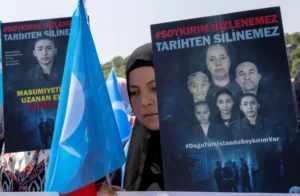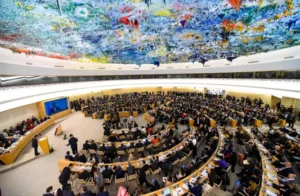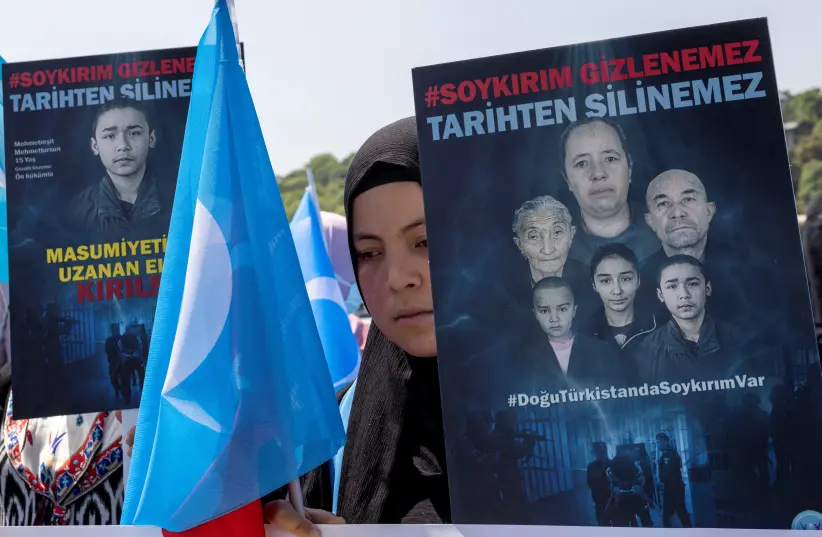It’s the second year in a row that Israeli has signed onto such a statement.

Israel joined a 47-country bloc that denounced China’s forced imprisonment of Uyghur Muslims at the United Nation’s Human Rights Council on Tuesday.
“We continue to be gravely concerned about the human rights situation in Xinjiang Uyghur Autonomous Region.”
Paul Bekkers
“We continue to be gravely concerned about the human rights situation in Xinjiang Uyghur Autonomous Region,” said Dutch Ambassador Paul Bekkers as he read out the statement during the second day of the UNHRCC’s 50th session in Geneva.
It’s the second year in a row that Israeli has signed onto such a statement. Last year, the initiative to highlight China’s human rights abuses was led by Canada, with the support of the United States and many European countries. This year it was spearheaded by the Netherlands. Israel, however, declined to sign a similar statement read out in the fall at the United Nations General Assembly in New York.
UNHRC
At the UNHRC on Tuesday, Bekkers said that “numerous extensively researched and credible reports indicate that over a million people have been arbitrarily detained.”
Bekkers’ statement spoke of the abusive treatment of the Uyghur Muslims but did not mention the word genocide.

There are, he said, “reports of ongoing widespread surveillance, discrimination against Uyghurs and other persons belonging to minorities as well as of severe restrictions on Uyghur culture and the exercise of human rights and fundamental freedoms, including the right to freedom of religion or belief.
“We are also concerned about reports of torture and other cruel, inhuman or degrading treatment or punishment, forced sterilization, sexual and gender-based violence, forced labor, and forced separation of children from their parents by authorities.
Bekkers said that aside from the mistreatment of the Uyghur Muslims, the signatories to the statement were also “gravely” concerned about the deterioration of human rights in Hong Kong and Tibet.
He urged China to comply with international law and to ratify the International Covenant on Civil and Political Rights. He also called on all countries not to force people at risk to return to China.
Bekkers noted the recent restricted visit UN High Commissioner for Human Rights Michele Bachelet made to China in May and asked for a timeline for the submission of her report on that visit.
Bachelet, 70, was criticized by rights groups as well as some Western governments, including the United States for her China trip by those who said the conditions Chinese authorities imposed on the visit did not enable a complete and independent assessment of the human rights environment. There has been speculation that backlash from the China trip is behind her announcement on Monday that she plans to step down at the end of her four-year term in August rather than accept a second term.
The countries that signed the China statement were: Albania, Andorra, Australia, Austria, Belgium, Belize, Bulgaria, Canada, Croatia, Czech Republic, Denmark, Estonia, Eswatini, Finland, France, Germany, Guatemala, Honduras, Iceland, Ireland, Israel, Italy, Japan, Latvia, Liechtenstein, Liberia, Lithuania, Luxembourg, Marshall Islands, Monaco, Montenegro, Netherlands, New Zealand, North Macedonia, Norway, Palau, Poland, Portugal, Romania, San Marino, Slovakia, Slovenia, Spain, Sweden, Switzerland, the United Kingdom and the United States.

